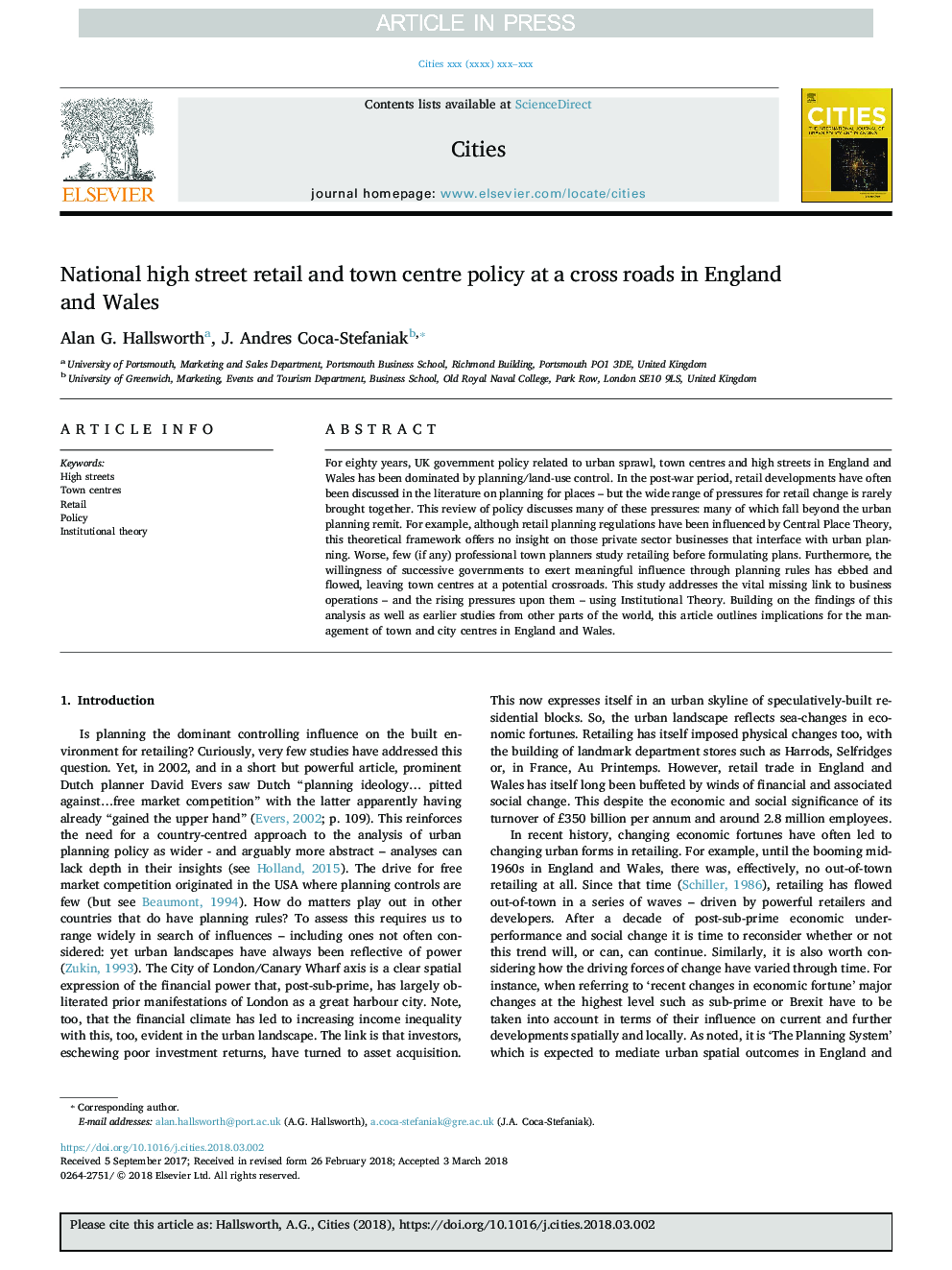| Article ID | Journal | Published Year | Pages | File Type |
|---|---|---|---|---|
| 7417123 | Cities | 2018 | 7 Pages |
Abstract
For eighty years, UK government policy related to urban sprawl, town centres and high streets in England and Wales has been dominated by planning/land-use control. In the post-war period, retail developments have often been discussed in the literature on planning for places - but the wide range of pressures for retail change is rarely brought together. This review of policy discusses many of these pressures: many of which fall beyond the urban planning remit. For example, although retail planning regulations have been influenced by Central Place Theory, this theoretical framework offers no insight on those private sector businesses that interface with urban planning. Worse, few (if any) professional town planners study retailing before formulating plans. Furthermore, the willingness of successive governments to exert meaningful influence through planning rules has ebbed and flowed, leaving town centres at a potential crossroads. This study addresses the vital missing link to business operations - and the rising pressures upon them - using Institutional Theory. Building on the findings of this analysis as well as earlier studies from other parts of the world, this article outlines implications for the management of town and city centres in England and Wales.
Related Topics
Social Sciences and Humanities
Business, Management and Accounting
Tourism, Leisure and Hospitality Management
Authors
Alan G. Hallsworth, J. Andres Coca-Stefaniak,
